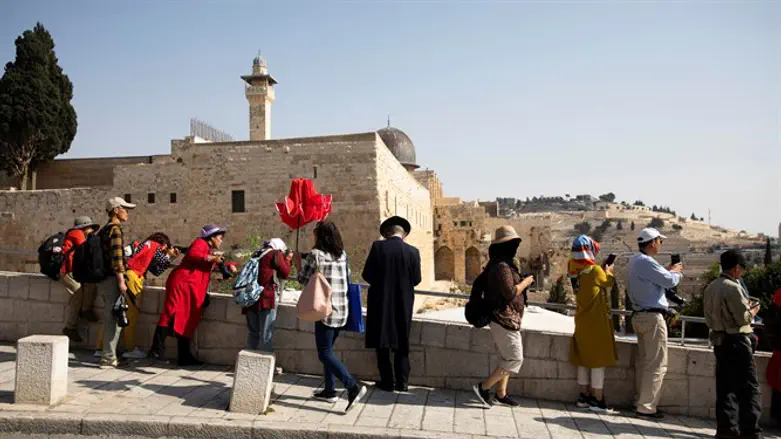
The coronavirus crisis has gripped the tourism industry in Jerusalem following years of accelerated growth, leaving it severely damaged. In light of this development, MK Matan Kahana was approved to lead a Knesset lobby for renewed tourism in the nation's capital.
Coupled with increasing security challenges, the coronavirus crisis has severely affected the industry. Srugim Hebrew-language new site reported that this has led to MK Matan Kahana's (Yamina) appointment to head a Knesset lobby group in the area. It remains to be seen how well Kahana is able to work alongside Minister of Jerusalem and Legacy Rabbi Rafi Peretz who defected from the Yamina party to join the coalition government.
The main purpose of the lobby, established at the initiative of Yishay Barnea, CEO of Jerusalem's Hotel Yehuda and CFO of Dan Panorama in the city, and Arie Sommer, Consul of the Israel Ministry of Tourism, is to help maintain and strengthen the local tourism infrastructure nurtured over the years. This will provide impetus for tourists returning to Israel's capital the day after the virus is behind us, with the hopes that their arrival speeds up the revival of the national economy as a whole.
As luck – or lack thereof –would have it, the current crisis comes amidst an unprecedented growth spurt in the industry. In 2018, Jerusalem was crowned as the city with the highest growth rate in the field with a 37.5% yearly increase, and according to a survey conducted by the Ministry of Tourism, 77.5% of all visitors to the country frequented the nation's capital.
The tourism industry in Jerusalem is steered by hotels employing some-11,000 staff. In 2019, over 4 million overnight stays were recorded by city hotels, one million of which were credited to Israeli citizens, and about 3 million to tourists from abroad, constituting 35% of all tourist hotel visits in the country. The overall contribution to the Israeli economy was estimated at an enormous NIS 8 billion.
The history and heritage of Jerusalem have made the city a magnet for tourists. In turn, the flourishing tourism industry has accounted for the opening of numerous businesses including: restaurants, bars, cafes, Judaica and souvenir shops, tourist guides, historical and religious attractions, taxi drivers, and shuttle companies, alongside its historical treasures such as the City of David, Israel Museum, Biblical Zoo, Tower of David, and others.
A stoppage in incoming flights has strongly affected the sector, with many businesses already facing bankruptcy. The anticipation that the crisis will continue for months to come, possibly reaching a conclusion towards the tail end of 2021, necessitates government funding to preserve the business.
